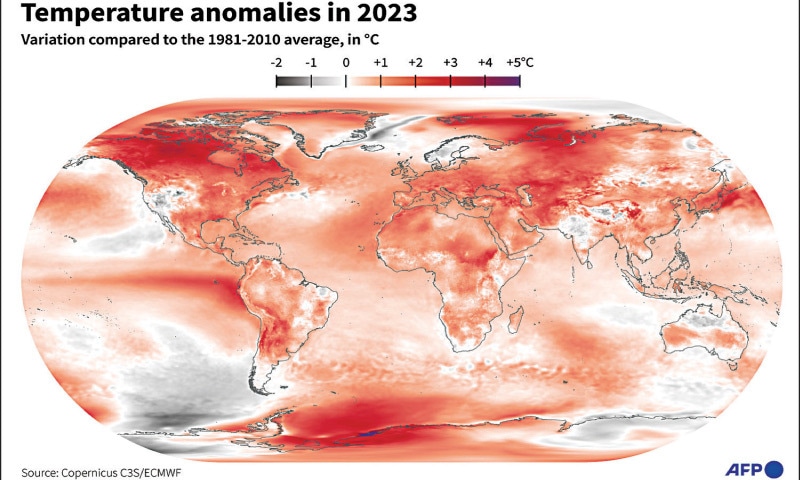According to UN estimates released on Tuesday, floods. And storms accounted for the majority of fatalities and economic losses in Asia. Which was the world’s most disaster-prone region. In terms of climate and weather hazards in 2023.
Last year, global temperatures reached record highs. And Asia was warming at a particularly quick rate. According to the UN’s weather and climate agency.
The future water security of the region is being threatened by melting glaciers. According to the World Meteorological Organisation (WMO). Which stated that the effects of heatwaves in Asia are getting worse.
According to the WMO, temperatures in Asia grew by almost two degrees Celsius. Last year compared to the average global warming between 1961 and 1990.
The head of WMO Celeste Saulo stated,
“The report’s conclusions are sobering.”
WMO warns that the region’s future water security is at risk due to melting glaciers.
Along with a plethora of extreme weather events. Including heatwaves, floods, and storms, 2023 was the hottest year. On record for many of the region’s countries. The frequency and intensity of these occurrences have increased. Due to climate change, she said, having a significant negative influence on economies. Societies, and most importantly, human lives and the environment.
The State of the Climate in Asia 2023 report warned that the region’s economies. Societies, and ecosystems would suffer grave consequences. As major climate change indicators, like sea level rise, glacier retreat. And surface temperature, accelerate.
According to the WMO, “weather, climate, and water-related hazards continued. To make Asia the world’s most disaster-hit region in 2023.”
Floods, heat, and melting
With an annual mean near-surface temperature over Asia in 2023 that was 1.87 degrees. Above the 1961–1990 average and 0.91 degrees above the 1991–2020 average, it was the second highest on record.
The report stated that exceptionally high average temperatures were recorded. From eastern China to Japan, and from western Siberia to central Asia. With Japan experiencing its hottest summer on record.
Precipitation in the Hindu Kush mountain range in Pakistan and Afghanistan. As well as the Himalayas, was below average.
In the meantime, there was a drought in southwest China. With precipitation levels in almost every month of the previous year. Being below average.
Outside of the polar regions, the highest volume of ice is found. In the High-Mountain Asia region, which is centred on the Tibetan Plateau.
According to the WMO, the majority of these glaciers have been retreating. For a number of decades, and last year, 20 out of 22 glaciers in the area. That were being monitored showed ongoing mass loss.
According to the report, the northwest Pacific Ocean’s sea surface temperatures. In 2023 will be the highest ever recorded.
The “urgency” to act
Asia reported 79 disasters related to weather hazards related to water last year. Of those, storms and floods accounted for over 80%. Resulting in over 2,000 fatalities and directly affecting nine million people.
“Floods accounted for a significant portion. Of the deaths in events reported in 2023,” the World. Meteorological Organisation (WMO) stated, highlighting Asia’s ongoing high susceptibility to natural disasters.
Typhoon-related rains on September 7 brought Hong Kong. Its highest one-hour rainfall total since records began in 1884: 158.1 millimetres.
National weather services in the area are desperately needed. According to the WMO, to provide officials tasked with lowering the likelihood. Of disasters with better, more specialised information.
According to Saulo, “it is essential that our strategies. And actions reflect the urgency of these times.” “Reducing greenhouse gas emissions and adjusting. To the changing climate are essential requirements, not just options.”


Comments are closed, but trackbacks and pingbacks are open.